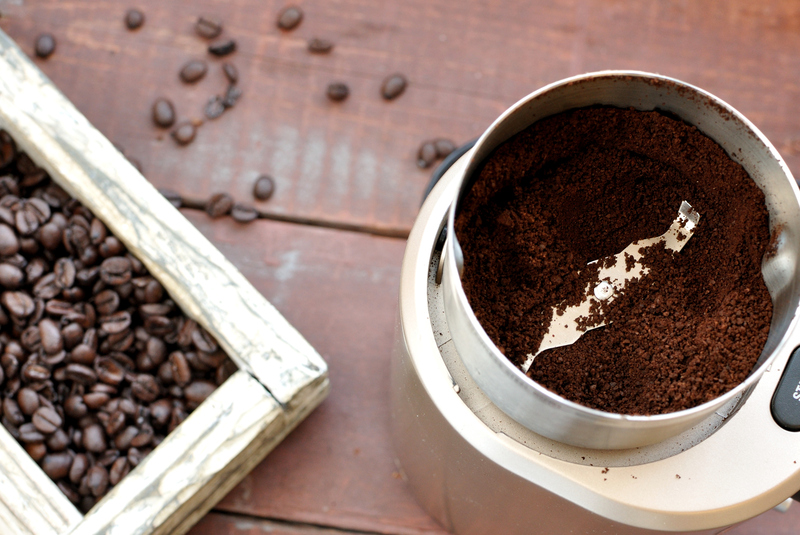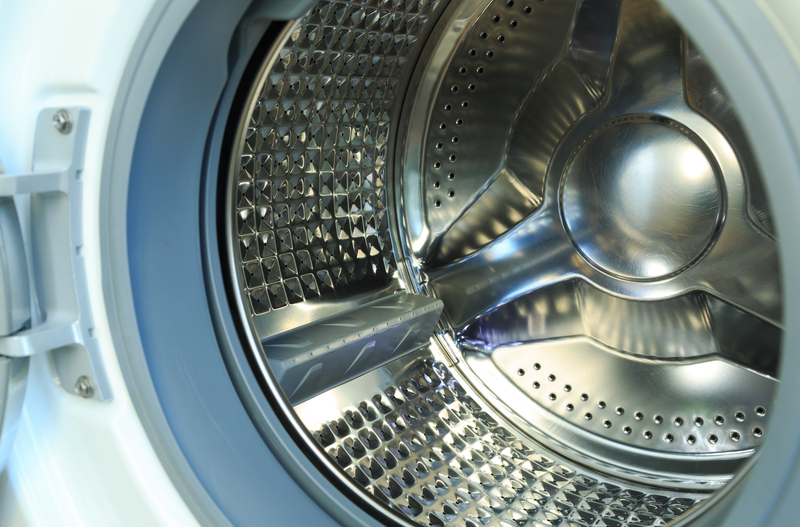The Ultimate Guide to Jewellery Cleaning Techniques
Posted on 16/06/2025
The Ultimate Guide to Jewellery Cleaning Techniques
Maintaining the sparkle and allure of your precious jewellery isn't just about enhancing its beauty--it's crucial for preserving its value and ensuring longevity. Jewellery cleaning techniques vary vastly depending on the type of metal, gemstone, or setting, and choosing the right method can save your favorite pieces from unnecessary wear or irreversible damage. Welcome to the Ultimate Guide to Jewellery Cleaning Techniques--your comprehensive resource for keeping your treasures gleaming.

Why Should You Clean Your Jewellery Regularly?
From daily wear to occasional outings, your jewellery accumulates dirt, oil, and environmental debris that dull its shine. Over time, grime can cause tarnishing, diminish stone brilliance, and even weaken settings. Adopting proper jewellery cleaning methods ensures that your pieces remain radiant and structurally sound for generations. Let's delve into the ultimate jewellery care and cleaning strategies for all your precious ornaments.
Understanding Your Jewellery: Materials & Sensitivities
The first step in effective jewellery cleaning is understanding the type of materials you own:
- Gold: Resistant to tarnish, but can scratch and dull
- Silver: Prone to tarnishing, requiring specific anti-tarnish cleaning
- Platinum: Durable, but can develop a patina or surface scratches
- Gemstones: Each type (diamonds, sapphires, pearls, opals, etc.) has unique cleaning requirements
- Costume Jewellery: Often more delicate and sensitive to moisture or harsh chemicals
Before diving in, always check for loose stones or weak clasps to avoid accidental loss during cleaning. When in doubt, it's advisable to consult a professional jeweller.
Essential Supplies for Home Jewellery Cleaning
Gathering the right supplies ensures safe and effective cleaning. Here's what you'll need for most common jewellery types:
- Soft lint-free cloth or microfiber polishing cloth
- Mild dish soap (free from harsh detergents or moisturizers)
- Soft toothbrush (preferably baby-sized for gentle cleaning)
- Warm water
- Bowl or small container (never clean directly over an open drain!)
- Wooden toothpick or cotton swab for stubborn grime
Optional but powerful:
- Jewellery cleaning solution: Commercially available, but ensure it's suitable for your type of jewellery
- Ultrasonic cleaner: Provides deep cleaning, but not recommended for certain gemstones or delicate pieces
The Best Jewellery Cleaning Techniques by Type
How to Clean Gold Jewellery
Pure gold is naturally lustrous, but alloyed gold needs gentle care.
- Prepare a Cleaning Solution: Mix lukewarm water with a few drops of mild dish soap.
- Soak the Jewellery: Submerge for 15-20 minutes.
- Brush Gently: Use a soft toothbrush to clean hard-to-reach areas and intricate designs.
- Rinse under warm running water, ensuring no soap residue remains.
- Dry: Pat dry with a soft, lint-free cloth.
Tip: Avoid abrasive cleaners and never use chlorine bleach, as gold can react and become brittle.
Cleaning Silver Jewellery: Removing Tarnish Safely
Silver is susceptible to tarnish over time, especially when exposed to air and moisture. Here's the safest way to restore its shine:
- Soap & Water Method: Use the same gentle mix as with gold, followed by careful brushing and drying.
- Baking Soda Paste: Combine a small amount of baking soda with water; gently rub with a soft cloth for stubborn tarnish.
- Aluminum Foil Bath: Line a bowl with foil, add hot water and a tablespoon of baking soda. Place the tarnished silver in the solution--tarnish will transfer from the jewellery to the foil!
Don't: Use toothpaste or harsh polishes, as they can scratch silver surfaces.
Keeping Diamonds & Gemstones Brilliant
Diamonds may be the hardest gemstone, but their settings and other stones may be prone to damage. Here's how to clean them for maximum sparkle:
- Warm Soapy Water: The safest bet for most gems. Prepare a mild solution and soak for 10-20 minutes.
- Brush: Use a soft toothbrush to gently clean under the stones and settings.
- Rinse & Dry: Use lukewarm water and dry with a soft, clean towel.
Beware: Pearls, opals, and emeralds are porous and shouldn't be soaked or exposed to ultrasonic cleaners. Instead, wipe gently with a damp cloth.
Pearl Jewellery Care and Cleaning
Pearls are an organic gemstone and very delicate. They are best cleaned by:
- Wiping gently with a soft, moist cloth after each wear
- Never soaking or using chemicals
- Allowing pearls to dry completely before storing
- Restringing regularly if worn often, as silk thread wears over time
Pro Tip: Put on your pearls only after applying lotions, perfumes, or hairspray, as these substances can dull their luster.
Cleaning Costume Jewellery
Costume or fashion jewellery may be made from base metals, rhinestones, or glued components that shouldn't be exposed to water.
- Wipe gently with a dry or slightly damp soft cloth
- Avoid immersion or abrasive cleaning agents
- Polish with a microfiber cloth for a dry shine
Deep Cleaning: Professional Jewellery Cleaning Options
Even with conscientious home care, periodic professional jewellery cleaning is recommended to:
- Check for loose stones, bent settings, or weakened clasps
- Remove tough grime and restore original brilliance using specialized tools and solutions
- Polish and buff for mirror-like shine without damaging your precious pieces
Most jewellers offer in-house cleaning, ultrasonic, steam, or chemical treatments for advanced maintenance. For antiques or high-value pieces, always use a certified professional to avoid costly mistakes.
How to Use an Ultrasonic Jewellery Cleaner
Ultrasonic cleaners provide a powerful and convenient way to deep-clean jewellery, but not all pieces are suitable. Here's how to safely use one:
- Ensure Suitability: Safe for gold, platinum, diamonds, sapphire, and ruby. Never use on pearls, opals, emeralds, or glued/stuck stones.
- Prepare the Cleaning Solution: Use only recommended liquids (often water with a drop of mild detergent).
- Place jewellery in the basket. Don't overcrowd--each piece should have space.
- Set Timer: Follow the manufacturer's instructions--usually 3-5 minutes for general cleaning.
- Rinse and Dry: Use lukewarm water and pat dry. Inspect carefully for any issues before wearing.
Warning: Prolonged use or misuse can loosen stones. When in doubt, consult your jeweller before ultrasonic cleaning.
Jewellery Cleaning Mistakes to Avoid
While good intentions abound, some common mistakes can do more harm than good to your cherished items. Here are the top pitfalls to steer clear of:
- Using Harsh Chemicals: Avoid bleach, ammonia (except for diamonds in limited quantities), acetone, or commercial cleaners not specified for your jewellery type.
- Excessive Soaking: Especially bad for soft or porous stones like pearls or turquoise
- Toothpaste & Abrasives: These scratch most metals and stones
- Paper Towels: Can scratch the surface--stick to microfiber or linen
- Overlooked Settings: Weak prongs or loose stones should be addressed before cleaning
- Direct Heat or Sunlight: Especially harmful to colored stones, pearls, or organic materials
Easy Maintenance Tips: Keeping Your Jewellery Cleaner, Longer
- Remove Jewellery: When washing hands, swimming, cleaning, or applying beauty products
- Store Separately: Keep pieces in soft-lined pouches or boxes to avoid scratches
- Regular Wiping: After each use, wipe with a soft cloth to remove oils and prevent buildup
- Routine Check-Ups: Inspect clasps and settings for security
- Climate Control: Store away from direct sunlight, humidity, or extremes in temperature

FAQs About Jewellery Cleaning Techniques
How often should I clean my jewellery?
For frequently worn pieces, a light weekly clean and thorough monthly cleaning is ideal. Special occasion jewellery can be cleaned before and after use.
Is professional cleaning always necessary?
No, but it's wise for valuable items or if you notice settings loosening or stones losing brilliance.
Can I use vinegar to clean my jewellery?
While vinegar is a natural cleaner, its acidity can damage certain stones and metals, especially pearls and soft gemstones. Stick to approved methods for your jewellery type.
What should I do if my jewellery includes both delicate and durable stones?
Use the gentlest method suitable for the most delicate component. Avoid soaking or harsh treatment, even if part of the piece seems robust.
Conclusion: Shine On with the Right Jewellery Cleaning Methods
From timeless gold rings to vibrant gemstone necklaces, keeping your jewellery clean is as much about routine care as it is about using the right jewellery cleaning techniques. Regular, gentle cleaning and smart storage habits will allow you to enjoy your dazzling accessories for years to come--while preserving their intrinsic and sentimental value. For peace of mind with valuable pieces, don't hesitate to seek out a trusted jeweller for advice or periodic cleaning.
Now that you're equipped with the ultimate guide to cleaning jewellery, give your treasures the love and attention they deserve--and let them shine!




